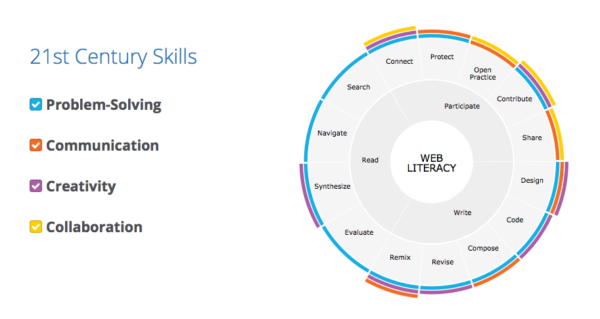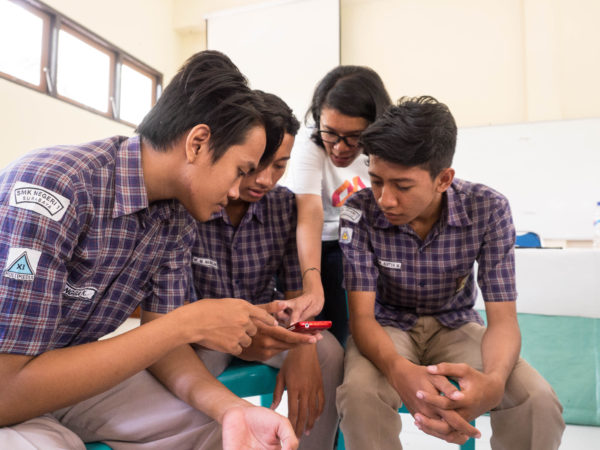Within the next decade, the number of individuals with access to the Internet will rise to five billion. These billions of new users, many from emerging markets, have the potential to experience unprecedented personal, civic and economic opportunity online — but only if they have the necessary skills to meaningfully wield the Internet.
To this end, Mozilla is dedicated to empowering people with the knowledge they need to read, write and participate online. We define this knowledge as "web literacy" — a collection of core skills and competencies like search engine know-how, design basics, online privacy fundamentals, and a working understanding of sharing, open source licensing and remixing.
We don't believe everyone needs to learn how to code in order to be web literate. But when everyone has a fundamental understanding of web mechanics, they're able to realize the Internet's full potential. Learning and teaching these skills — combined with 21st-century skills like collaboration and problem solving — allows more and diverse people to shape the Web. And this helps grow a stronger, healthier open Internet.
When users aren't web literate, they become disenfranchised from the open Internet. And the Internet itself suffers, too — without new and diverse users, it becomes more closed, more commercial, more monolithic.
We believe web literacy is as important as reading, writing and arithmetic. When teaching these three Rs, we rely on centuries of experience. But the Internet has no clear educational roadmap. Mozilla created the Web Literacy Map, version 2.0 as a resource to fill this gap and aid educators around the globe who are teaching and learning the Web.
The Map is an interactive, detailed framework that outlines and defines the key web literacy and 21st-century skills needed to realize the Internet's full potential. The Map also provides hands-on activities for teaching and learning these skills.
Mozilla staff and volunteers worked for several months to create and launch the Map. A diverse collection of researchers, educators, scientists, entrepreneurs and others contributed research, interviews, surveys and focus groups.
Explore Mozilla's new Web Literacy Map ≫
 Whether you're a first-time smartphone user or accomplished programmer, we encourage you to explore the Map, and to use it as a resource as you teach and learn the Web with those around you.
Whether you're a first-time smartphone user or accomplished programmer, we encourage you to explore the Map, and to use it as a resource as you teach and learn the Web with those around you.
An-Me Chung is the Mozilla Foundation's Director of Strategic Partnerships.

Mozilla community members teach the Web in Indonesia. Credit: Laura de Reynal


0 comments:
Post a Comment